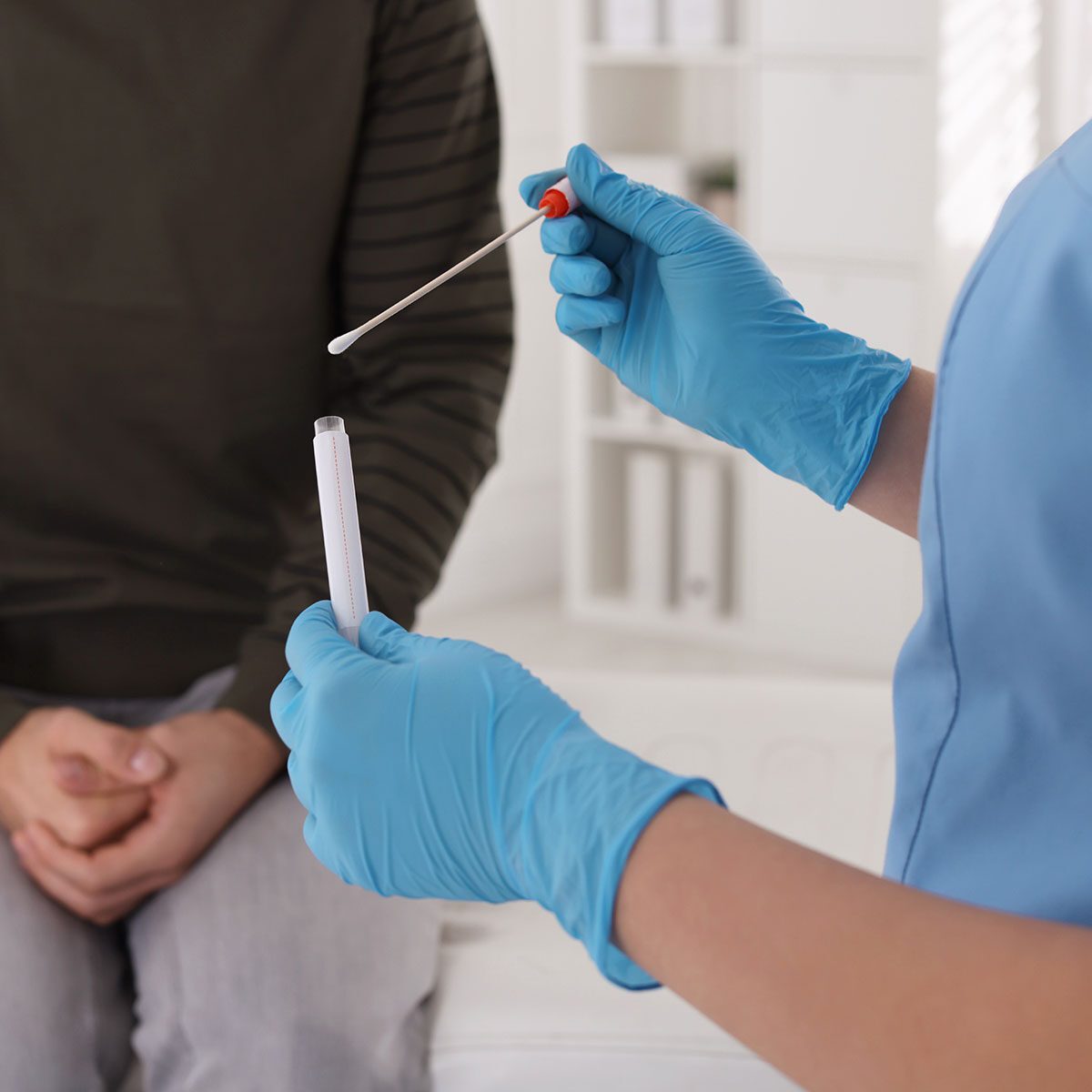Family planning, contraception and STI screening
Sexual wellness is a huge part of a woman’s reproductive health and - along with fertility, pregnancy, and menopause - constitutes the reason for most of her visits at the gynecology clinic.
Sexual wellness encompasses all aspects of a woman’s sexual life at all stages of her adult life. The clinic’s multidisciplinary approach addresses common issues such as difficulty with sexual arousal, lack of vaginal lubrication, painful intercourse, incontinence, or intimacy issues. In fact, all facets of a woman’s reproductive life, including family planning, contraception, and STI screening and treatment are part of sexual wellness.
Family planning helps women plan for when (or even if) they will have children. It also protects women from any health risks that may occur before, during or after childbirth. These may include high blood pressure, gestational diabetes, any infections, or complications from a miscarriage.

What’s the right kind of birth control for you?
Birth control concerns constitute the largest part of a woman’s reproductive health. Methods of contraception include oral contraceptive pills, implants, injectables, patches, vaginal rings, IUDs, condoms, male and female sterilization, and fertility awareness-based methods, where a woman monitors her fertility markers during her menstrual cycle to either get pregnant or avoid getting pregnant.
The type of birth control that a woman uses ultimately depends on her health, her desire to have children now or sometime in the future, and her current risk of sexually transmitted infections. Your doctor can help you decide which type is best for you at this moment in your life.
Some women may opt for the pill or a simple barrier method like a condom, or some may want an IUD (a small plastic or copper device placed inside the woman's uterus by your doctor that releases small amounts of progestin) and can be left in place for 3 to 10 years. And some women may decide, after having had children, that they want a tubal ligation, commonly referred to as “getting your tubes tied,” which is a more permanent form of birth control.
The right contraception
When it comes to birth control, your doctor will ask about your medical history and any medications you may be taking, and this will determine which course of action is safest for you and which birth control pill is right for you.
Choosing the right birth control can be a challenge for some women. They may react to the hormones in certain birth control pills and will need to work with their doctors to find the right pill or contraceptive method for them. For example, women with blood clotting issues may be discouraged by their doctor from using the pill.
Emergency contraception is also part of family planning and is a safe way to prevent pregnancy after unprotected sex or if you forgot to take your pill. There are a few types of emergency contraception, like the insertion of an IUD, or the morning-after pill, and some work better than others. The decision for which to choose depends on a variety of factors such as how long it’s been since you had unprotected sex, your weight, whether you’re breastfeeding, etc. The decision should be made in consultation with your doctor.
Ultimately, the right family planning gives women the power to decide when and under what conditions they will start a family –or not.


STI screening and treatment
Sexually transmitted infections (STIs) are infections transmitted during any type of sexual contact. Common STIs in women include chlamydia, gonorrhea, HPV, genital herpes, and the Zika virus. Millions of sexually active men and women contract sexually transmitted infections ever year. Some STIs can be cured, and some cannot but can be managed with medication.
It’s important for women to keep up with regular screening because many common STIs exhibit no symptoms and cause no discomfort. What’s more, women have a higher risk than men of getting an STI during unprotected sex. A shame-free environment at your clinic where no questions are off the table and where patients are comfortable being honest and staying informed is encouraged. Your health depends on it.
Women can often have more serious health problems from STIs than men, and that includes the possibility of infertility. Chlamydia and gonorrhea, if left untreated, also raise the risk of chronic pelvic pain and life-threatening ectopic pregnancy. Untreated STIs in pregnant women can also result in serious health problems for the unborn baby.
HPV infection and cervical cancer
Women who have had chlamydia, herpes, gonorrhea or syphilis also run a higher risk of developing cervical cancer. A vast majority of cervical cancer is due to the human papillomavirus (HPV). HPV is the most common viral infection of the reproductive tract. HPV infections are so common that most men and women will get infected with at least one type of HPV at some point in their lives. Some of these infections can eventually lead to cancer.
Fortunately, a safe and effective HPV vaccine is now available that can prevent the infections that most commonly cause cancer. The medical community recommends HPV vaccination for boys and girls starting at 11-12 years of age to protect against HPV-related infections and cancer. The vaccine is very effective and in the past years since it’s been approved, numerous studies have confirmed that it works well. In fact, widespread HPV vaccine use has dramatically reduced the number of women who will develop cervical cancer.


Testing for sexually transmitted infections
STI testing at the clinic can include a pelvic and physical exam, where your doctor looks for visible signs of infection, such as warts, rashes, or discharge. A nurse can draw blood for a test to detect an STI, or a urine test can be used in similar fashion. A fluid or tissue sample can also be taken for lab testing if you have an active infection.
Most STIs can be treated with oral medication, antibiotics, or with shots. Some STIs like herpes or HIV can’t be treated, but daily use of antivirals can manage the symptoms and prevent or shorten outbreak. They also reduce the likelihood of you infecting someone else. If you’re tested and test positive for an STI it’s important to notify your sexual partner.
Sexual wellness is ultimately about our overall physical and mental wellness because it profoundly affects every aspect of our lives. Practicing safe sex, maintaining regular checkups, and getting tested regularly is a good way to ensure our overall health.
Make an Appointment
Online inquiries are answered as soon as possible during regular business hours.
The fastest way to reach us is by completing the online inquiry form below.
514-933-2778
1-800-849-6048
514-788-1484
Monday to Friday: 8:00 – 16:00 Saturday: Closed
Sunday: Closed
Why is VM Med
the right choice?
Our multidisciplinary team values building long term relationships with our patients. Opting for healthcare services at our private clinic ensures patients receive excellent and timely care with a specialist. Comprehensive exams are conducted onsite, and results are provided in a timely manner.

